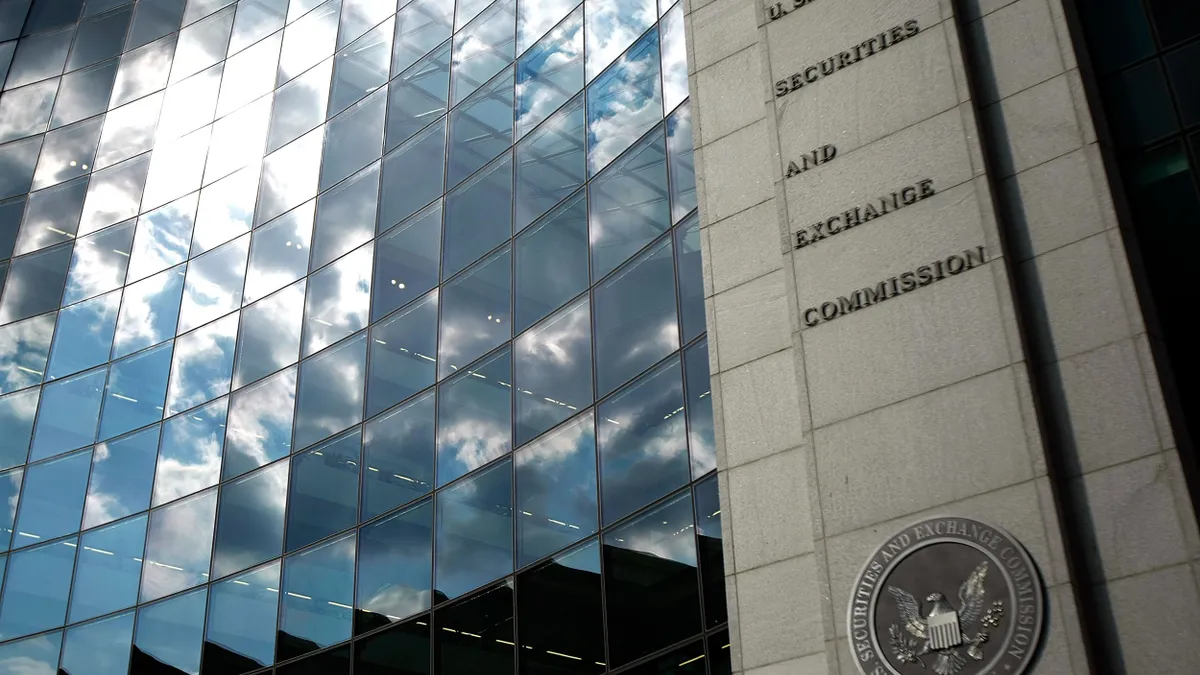It would take an act of Congress to dissolve the Public Company Accounting Oversight Board, a watchdog for the audit industry created by the 2002 Sarbanes-Oxley Act.
However, the incoming presidential administration doesn’t “have to destroy it to make it ineffective,” said Robert Pawlewicz, assistant professor of accounting at the Robins School of Business for the University of Richmond in Richmond, Virginia. “You just have to grind it to a halt.”
That could very well be the approach taken by President-elect Donald Trump’s second administration, which would mirror how the PCAOB — overseen by the Securities and Exchange Commission — was run during the first Trump presidency, Pawlewicz said in an interview.
During Trump’s first presidency, the 2017 appointment of William Duhnke, a long-time aide to Alabama senator Richard Shelby, as the board’s chairman signaled a steep drop-off in enforcement and a friendlier relationship between auditors and the audit watchdog. In effect, Pawlewicz expects to see history repeat itself with the PCAOB during the second Trump administration.
“You would see a huge drop off in inspections, a huge drop off in enforcements, a huge drop off in standard setting, like new standards, just they didn't happen,” he said of the Duhnke PCAOB board. “So I would expect something along much the same lines as what we saw then.”
Board, take three
The PCAOB’s history as a regulatory body has been somewhat more fraught than might have been expected after the watchdog was first conceived.
“I think people that paid attention to the PCAOB for the first, let's say, 12 to 15 years of its existence, had expected that it was going to be left alone in the corner,” Pawlewicz said.
However, that hasn’t been the case for the regulatory body, responsible for the oversight of auditors including Big Four firms Ernst & Young, Deloitte, KPMG and PricewaterhouseCoopers. Its makeup and mandate has swung from presidential administration to administration, with both the Democratic and Republican parties alleging the regulator had failed in its duties throughout its history.
For instance, Duhnke, the head of the watchdog during Trump’s first term, was appointed as part of a complete overhaul of the PCAOB’s board aimed at making significant changes to its approach, after an exam-cheating scandal came to light which alleged previous PCAOB officials had colluded with KPMG auditors to receive “sneak peaks” at regulatory inspections, The Wall Street Journal reported in 2021.
However, reports of organizational dysfunction and weak enforcement under Duhnke led Securities and Exchange Commission Chair Gary Gensler to fire Duhnke and once again overhaul the board in 2021, with Gensler noting he removed Duhnke because the PCAOB had failed in its mission of “auditing the auditors,” according to The Wall Street Journal.
Under Gensler’s pick for PCAOB Chair Erica Williams, the newly re-conceived board moved to execute on a policy of aggressive enforcement, including imposing its largest fine of any type — a $25 million penalty issued to KPMG Netherlands.
With Trump’s pick for SEC chair Paul Atkins, the pendulum could once again be swinging the other way, Pawlewicz said.
“I think given the opportunity, Chairman Atkins, if he is sworn in, I would expect to see him do the full sweep” of the PCAOB’s board, Pawlewicz said.
It only takes one
Republicans have criticized Gensler’s policy of strict enforcement during his time as the SEC’s chair, in particular lambasting a rule which would mandate companies disclose the impact of climate change on their financial statements, CFO Dive previously reported.
Atkins, an advocate for the cryptocurrency industry, is widely expected to take a friendlier approach to regulatory enforcement than his predecessor Gensler — who announced he would be stepping down last month — which could spell significant changes for the PCAOB’s inner workings. A previous SEC commissioner, Atkins has previously spoken out against the audit watchdog, criticizing rules that he alleged hampered audit firms’ ability to make judgment calls as well as its budget and the salaries of its board members, according to The Wall Street Journal.
As the likely new chairman of the SEC, Atkins’ apparent disdain for the PCAOB has led some to question if the incoming administration will look to make a move to abolish the watchdog. But while there are certainly advocates for such a move, the PCAOB’s ultimate goal is to protect investors, Pawlewicz said — and a bid to abolish the watchdog would likely lead to some pushback.
“I would expect large institutional investors, banks, hedge funds, might say, ‘whoa…maybe they're a bit aggressive, we can reel them in a little bit,’” he said. “’But we've also seen, when the auditors have no oversight, they really go off the rails.’ So there's tension there.”
However, it’s critical to keep in mind that “that “accounting standards as they exist today are not written in stone,” he said, a key point he looks to impart to all of his students throughout his accounting courses.
“All it takes is one accounting scandal for it to swing back hard,” Pawlewicz said. If a massive accounting fraud scandal comes to light, with a large, household name, in the next few years, “and the accounting firm is implicated in it, all bets are off,” he said.




















